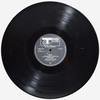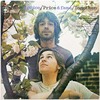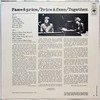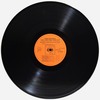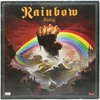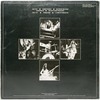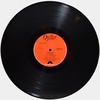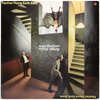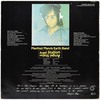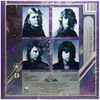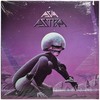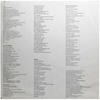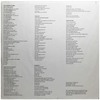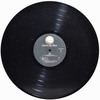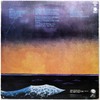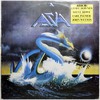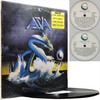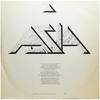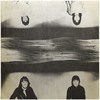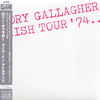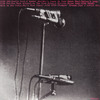Year:
9 March 1979 (LP 1979)Label:
Bronze Records (Germany), 200 367-320Style:
Pop Rock, RockCountry:
London, EnglandTime:
38:41Format:
Flac Tracks 16/44,1 kHzSize:
251 Mb
I don't have the least - nay, not the tiniest - nadah, not the teensy-weensy-schminsy-Britney-Spearsey idea of why this record turned out to be so much better and so much more adequate and enjoyable than the previous two, but fact is, it did, and I'm positively stumped.
After a few moments' reflexation worthy of a Rodin statue, though, here's what I have to say: Angel Station is really seriously different from its predecessors in many objective aspects. First, there's a lot of covers, and the choices are mainly solid. Second, the album is much more pop-oriented, with more songs, less pompous generic instrumental passages and less pretention in general - all the while retaining some edge, though. Third, Chris Thompson is really good here, taking things ever so slightly tongue-in-cheekier than before. I mean, not a single song sounds as straightforward, dumb, and choking with self-exaltation as 'Davy's On The Road Again (To Get His Piece Of Mouldy Cheese)'.
In all, Manfred Mann obviously wanted to step away from the stale prog formula that had rendered most of his formerly creative output so utterly unlistenable - and he did, and in his honour I must say that he did not choose the simplest way. There are slight New Wave elements on here, but none of the generic synth-pop that was about to replace disco, and no disco either. Well, okay, so I guess some of these songs could have been called "synth-pop", but it's not that synth-pop, you know. It's Manfred Mann synth-pop that he'd been doing ever since the world began, much like Jim Morrison did with the blues. These are really interesting pop songs with really interesting hooks. Not everything works, but not everything is supposed to work.
The two first songs are easily the best ones; I had spent truly delightful minutes humming 'You Angel You' to myself - hey, what a delightful poppy little gem! what optimism! catchiness! grace! power! ooh! - when I realized it was actually a Dylan cover, but it's just that by this time it looks like Manfred Mann's main motto was "If you can recognize a cover version, it ain't worth shit", first really aprobated on the Springsteen covers and now stretched over to Mr Zimmerman (apparently, the Boss proved to be way too trivial for Manfred Mann or something). Unfortunately, I can't verify this hypothesis on the other covers whose originals I've never heard, but all the same, the lyrically tedious eco-rocker "Don't Kill It Carol" ("it" is just a flower, if I'm not mistaken) is absolutely infectious melodically, with a wonderful "bass/talkbox guitar" interplay, great descending basslines and a dancey ABBA-esque chorus. Really smokin' guitar and keyboard solos as well, with my opinion on Mr Chris Thompson improving in spades. Heck, this is the first album where I never actually miss the lack of Mick Rogers, the poor chap.
Another positive highlight is the weird, near-mystical ode 'Angels At My Gate', in this reviewer's humble opinion, one of the best songs in Manfred Mann's entire catalog. The AMG review had an interesting idea about how Peter Gabriel's 'Games Without Frontieres' might have been influenced by this composition, and hey well you know, they just might have something there; in any case, it's hardly any worse, and sports pretty much the same thrilling otherworldly atmosphere, with echoey ominous drums, misty vocals and heavenly synths somewhere high up in the sky. And the only thing that can keep that threatening chorus out of your head - '58, 56, 54, good angels at my door...' is the fact that you can easily mess up the numbers.
The rest of the album is mainly dedicated to over-arranged ballads and stuff like that, but it's still much of an improvement. Take, er, 'Waiting For The Rain', for instance; now doesn't it sound fresh and luvverly with real violins thrown in and all? And the synths actually hidden in the background? Now have the courage to admit, if Styx had gone ahead and done a song like that, they'd put the wheezing synths ahead and they'd also sing this with soooo much more of that thing they usually call "feeling" (but in the case of Styx, I wouldn't dare to speak that term out loud). And Manfred Mann just goes with the violins, and that's a pretty damn hot violin solo out there, countryish and yet classically-influenced all at once.
But it's not even the end - no, the final tune is 'Resurrection', a cute little poppy ditty about the commercialization of religion (with the notably memorable refrain 'We'll sell them Jesus dirty books too, I wonder what Billy Graham will do'). The best closer to a Manfred Mann album I've heard in years. Yoopee, it is the best Manfred Mann album I've heard in years, even if there's still some filler I'm not going to discuss. Well okay, so I've only been listening to Manfred Mann for a few months now, so you do your own little maths and I'll write my own piddly little reviews and in the meantime let's just hope and pray somebody in the future has an anti-commercial nerve to go ahead and make this album available for the general public.
(Album Reviews; starling.rinet.ru/music/earth.htm)
01. A1 Don't Kill It Carol (06:14)
02. A2 You Angel You (04:01)
03. A3 Hollywood Town (05:08)
04. A4 Belle Of The Earth (02:44)
05. A5 Platform End (01:30)
06. B1 Angels At My Gate (04:50)
07. B2 You Are - I Am (05:14)
08. B3 Waiting For The Rain (06:17)
09. B4 Resurrection (02:38)




